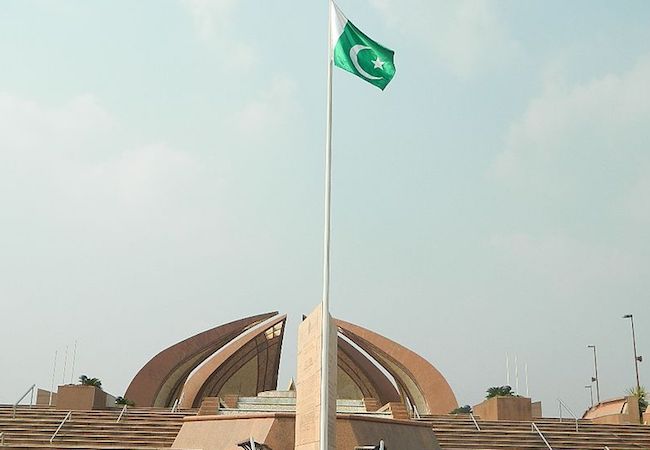
By Shahzadi Tooba Hussain Syed
During past, power Structures, terrorism, economic instability, poverty, reduced natural resources, food insecurity, and health problems were the most significant set of threats; giving rise to crisis and conflicts among nations. But now, the world has been confronted with the non-traditional security threats as well, and climate change is most continuous threat to world stability and security. It has threatened the Human security and considered as one of the biggest non-traditional security threats to national security. Climate change risk has numerous ways to impact the human security. It can cause food insecurity, water scarcity, floods, internal migrations or displacements, livelihood depletions, over flooding, increased land sliding and enhanced the glacier outfall, etc.
Climate change has severe implications for Pakistan as well. Pakistan is very high on vunerability scale and recent events have proven that Pakistan is vulnerable to all these threats, for example, frequent floods, killer heat waves in Karachi, earthquakes, freak tornado in Peshawar showed that climate change is the most potent threat to Pakistan’s security. In 2015, severe heat wave has killed almost 1500 peoples in Karachi, 49 were killed and million has lost property and lives due to sever tornado in Peshawar. Climate change is negatively affecting the health sector aswell, as it is playing an important role in nourishing the Dengue virus. Furthermore, due to increase in global warming and speedy melt of glaciers, Pakistan has faced years of floods which has drastically hit the economy of rural areas. Change in weather patterns and frequent floods are affecting the productivity of agriculture sector, especially negatively impacting crops and inflicting heavy losses to the state’s economy and posing wide-ranging impact on the food security situation. Food security and agriculture situation were already worse and climate change is making the situation more worse.
Pakistan’s vulnerability and costs of climate change are real and rising. There are numbers of factors such as geographic location, growing population, economic volatility, unstable infrastructure and bad governance has made Pakistan a vulnerable state to climate change. So it cannot afford to take the issue for granted. Response of national institutions to climate change is inconsistent and patchy with the climate change challenges. In past, government’s steps on climate change: such as Task force and Climate change core committee (2006-13) were considered effective to deal with issue, but unfortunately now these steps are inactive. Though the creation of climate change ministry and environment friendly parliament solar program is right step in right dimension, but working of ministry needs to be improved by funding, capacity building and research.
It is fact that climate change is a real national security threat but there exists no proper research and policy implementation framework. Though, a number of institutions are working on the subject, but none of these have taken any practical action into account Pakistan. So, a comprehensive policy framework on adaptation to climate change should be devised. Few recommendations are being mentioned below which need to be seriously considered.
- To pursue constant economic development by addressing the challenges of climate change properly.
- To integrate interrelated policies with climate change policy to achieve positive outcomes.
- To adapt early prevention strategies to counter emerging climate change challenges. Strategic forecasting and adaptation strategies can help in diminishing the adverse effects of climate change.
- Climate change adaptation is all about risk management. Government should take measures to anticipate risks posed by the climate change.
- Climate change policy and National DRR policy 2012 are government’s initiatives to deal with the challenges of climate change. Effective implementation of strategies and policies of both projects will help to reduce the loss in future disasters.
- Strengthening of weather forecasting capability would help to reduce vulnerabilities.
- To ensure food security, water security and energy security of the country in the face of threats posed by climate change.
- There is a need to raise awareness, promote education, institutional capacity and skills development of relevant stakeholders against climate change risks.
Failure to cope the risks associated with climate change, will pose serious challenges to human development and security, which is integral part of national security. Policy makers should formulate climate smart and development smart strategies, and implement them in a way that challenge of climate change turns into opportunity. It is right time to reduce communities’s vulnerability through strengthening their capacity to counter the environmental challenges. Policy implementation is inevitable and global partnership is the way forward.




